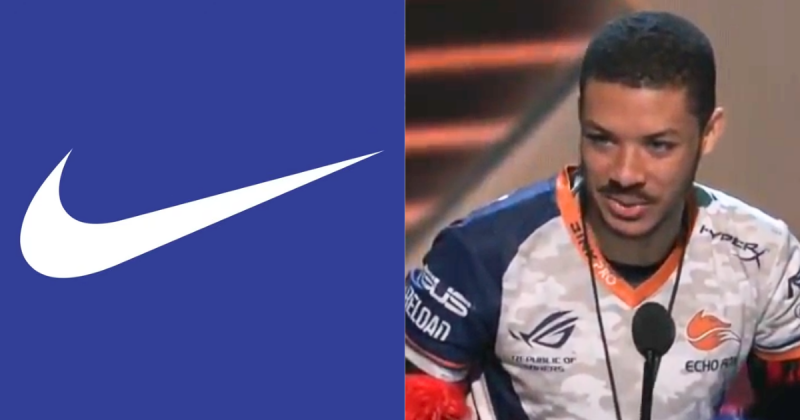Nike’s latest collaboration with British designer Martine Rose is putting the spotlight on competitive gaming, featuring professional esports player Dominique McLean, known as “SonicFox,” in a campaign that has drawn widespread attention and backlash.
McLean, a “nonbinary” gamer and self-described furry, appears in the promotional material both in a blue-and-white fox-themed outfit and without the mask, highlighting the intersection of gaming, identity and fashion.
The Daily Mail reports that the collection, dubbed Gaming Division, draws inspiration from 1990s LAN parties and in-person gaming gatherings, blending sport, streetwear and gaming culture.
Nike frames the line as appealing to “modern athletes” who are “connected, competitive, and boldly expressive,” while other featured gamers include Ana, Billy Mitchell, Scarlett and TenZ.
The designs include hoodies, ski parkas and football-inspired knits, offering apparel that merges streetwear aesthetics with functional athletic wear.
McLean, 27, from Delaware, has achieved international recognition in esports, particularly in fighting games.
Often referred to as the “LeBron James of gaming,” McLean has earned over $800,000 in prize money and holds eight EVO Championships, tied for the most in the competition’s history.
According to The Post Millennial, McLean discovered his furry persona, or “fursona,” at age 10 or 11 and began wearing furry attire at 16, first with fox ears and later with a full blue-and-white fox outfit.
Publicly coming out as nonbinary in 2019, McLean uses “he/they” pronouns and has described his identity as embracing both masculine and feminine traits.
“Gaming is a new lens into how we view sport, and I want to help expand that lens,” McLean said of the campaign.
Addressing public perceptions of the furry community, he added, “The world is full of uneducated people, and if people want to try and dunk on my fandom or others for stereotypical reasons, then why should I give them the time of day?”
Martine Rose emphasized the cultural focus of the project: “I’ve always been interested in finding the corners of mainstream cultures and shining a light on them through fashion.
“This collaboration with Nike offers a unique opportunity to do that in a way that’s authentic to gamers and their communities.”
The campaign has sparked debate online, where users expressed shock, ridicule and criticism.
X account Gays Against Groomers wrote that Nike is “a coveted brand for kids and teenagers across the globe” and accused the company of trying to “groom your children,” warning readers, “Don’t let them.”
Jennifer Sey, founder of XX-XY Athletics, added, “Just stop Nike,” while another user dismissed the campaign as “PEAK woke insanity.”
Nike faces additional challenges beyond public reaction.
Despite reporting $11.72 billion in revenue for the most recent quarter, up 1 percent year-over-year, digital sales remain sluggish, according to the Daily Mail.
CEO Elliot Hill acknowledged, “Organic traffic has slowed,” while CFO Mathew Friend projected potential revenue growth in the low single digits in the coming quarter.
Tariffs are expected to cost Nike $1.5 billion this year, up from $1 billion, as most production occurs overseas in Vietnam, China and Indonesia.
Competitors Adidas and Hoka posted stronger year-over-year growth of 12 percent and 11 percent, respectively.
By spotlighting high-profile esports athletes like SonicFox and combining fashion with gaming culture, Nike’s Gaming Division represents an ambitious effort to modernize the brand and attract younger, niche audiences.
However, the campaign also underscores the risks companies face when blending identity, subculture and marketing, particularly amid debates over LGBT-themed endorsements, social media backlash and cultural messaging.
By combining a high-profile campaign, the viral persona of SonicFox and reactions on X, Nike’s latest initiative illustrates both the opportunities and controversies inherent in targeting subcultures within the gaming world.

